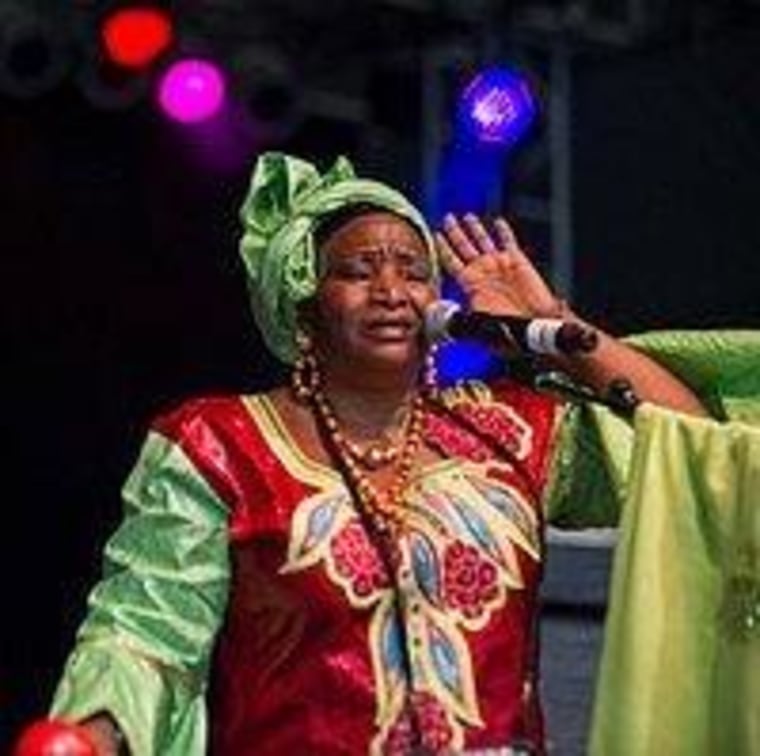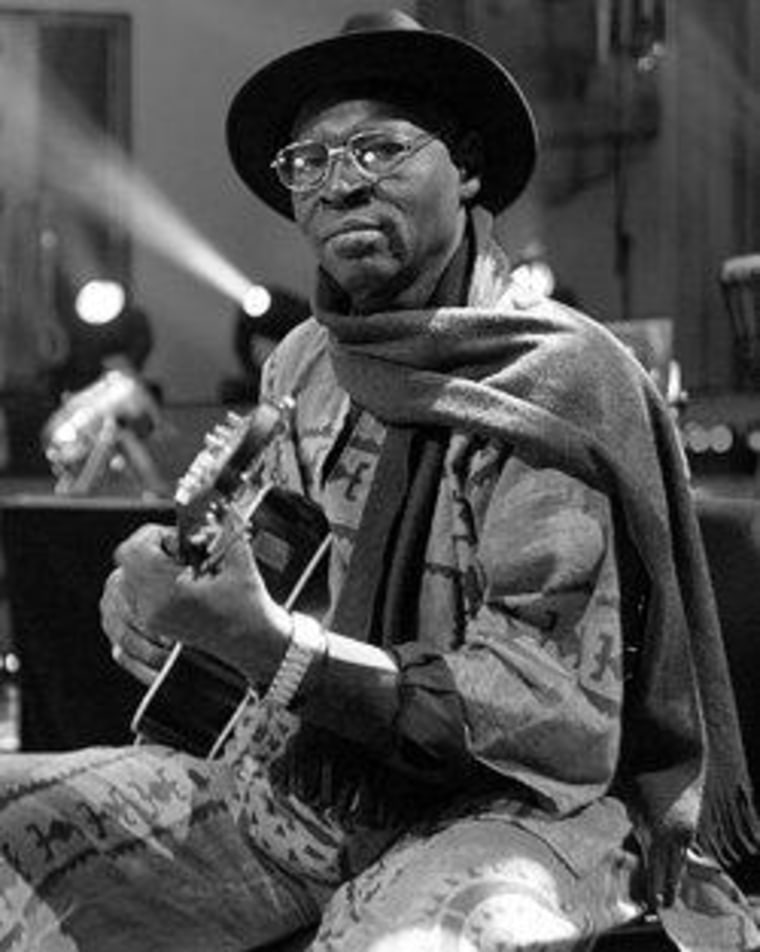It can be hard, sometimes, to know what to say to Richard when you meet him casually. I work at a standing work station and one time he walked by and asked me what the deal was and why I was standing up. I began to explain to him about reports of ill effects of sitting all day long when I realized I was telling a guy who dodges bullets and bombs for a living about the perils of restricted bloodflow to my butt. Ug.
But thankfully the other day when we arrived at the same elevator at the same time I had something more relevant to share. I told him what I'd been reading about Mali and the musicians there.
Oh yeah, he said, the music in Mali is great. It's where American blues came from. You should check out Ali Farka Touré, they call him the African John Lee Hooker. He's very famous.
We parted ways in the building lobby and I pulled a scrap of paper out of my pocket and wrote "Ali Forkature." Luckily, Google knew who I was looking for.
And it turns out they really do call Touré "the African John Lee Hooker," literally. And he really is famous. And Malian music really is seen as the forebear of American blues.

Ali Farka Touré died in 2006, so if you were Googling the musicians who participated in that song a couple of weeks ago, you wouldn't have found his name. One name you would have found, though, is Khaira Arby (more).
Described as the grand dame of Malian music and nicknamed "the Nightingale of the North," Arby fled Timbuktu when she was threatened by the Islamic extremists who had been taking over the northern towns in Mali and are presently being pushed out by French and Malian forces.
"Arby's own music studio in Timbuktu was raided by the local religious police. "They destroyed my instruments — guitars, mixing equipment, the production studio," she says, costing the loss at nearly £100,000."
Yesterday we learned the horrible news that in addition to targeting Malian musical culture, the religious extremists burned down several buildings over the weekend, including a Timbuktu library, the Ahmad Babu Institute, full of ancient, irreplaceable texts (more on those here and here).
And yet even with this escalation to a global offense against human heritage, it is the music of Mali that stays at the center of the story:
Residents of northern Mali's largest city poured out of their homes to celebrate the expulsion of Islamist fighters who had held their town for months, playing the music that had been forbidden under the militants' harsh interpretation of Islamic rule and dancing in the streets. ... The prohibition of music was particularly tough on Niafounké, Mr. Kané said, because it was the home of one of Mali's most celebrated blues musicians, Ali Farka Touré.
The album Baltimore's City Paper said illuminates the connection between Malian music and American blues through the playing of Ali Farka Touré is called Ali and Toumani. It's not in Grooveshark, but you can listen on Spotify for free if you've got that installed. As for Grooveshark's collection, the one I like the best so far (and on which the John Lee Hooker comparison is most evident) is Savane.
If you'd like to add Timbuktu and Niafounké to your mental map of Africa, you can see they're farther north than the towns we looked at last time:
